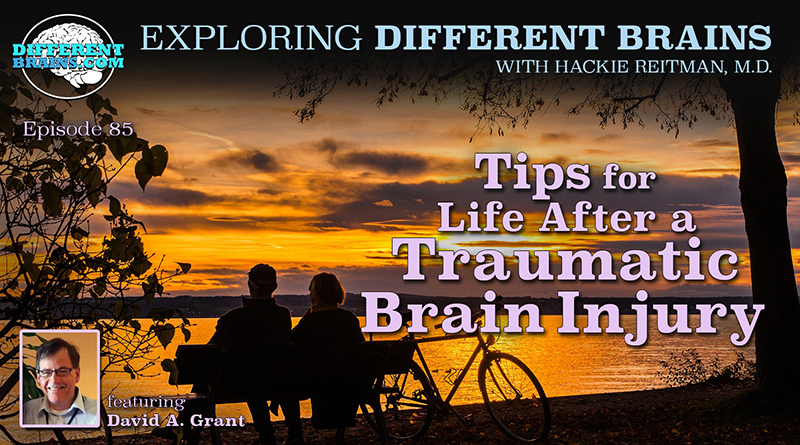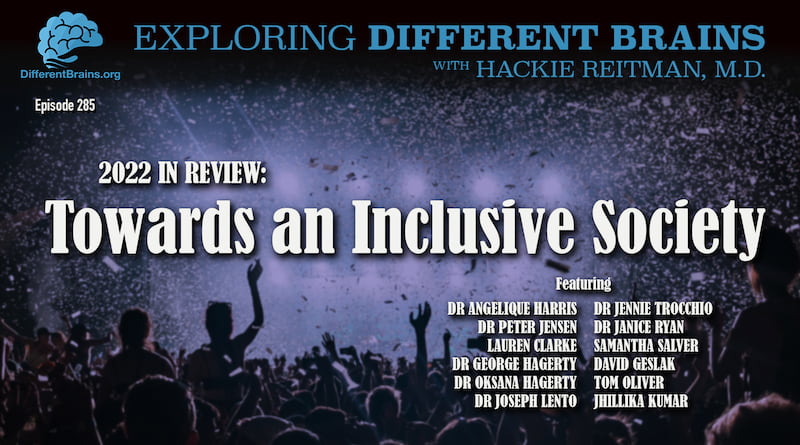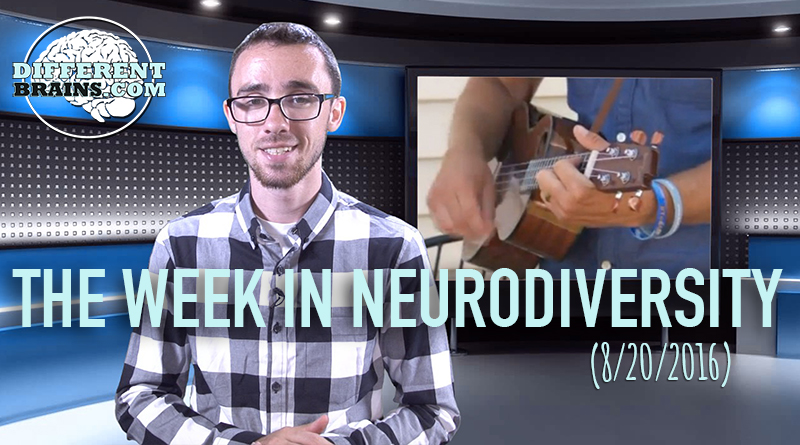Traveling with Disabilities, with Dr. JR Harding | EDB 298

Celebrated disability advocate and author, FSU’s Dr. JR Harding, discusses his world travels, and why he thinks everyone needs an adventure.
Dr. Harding is a recognized disability leader with over 37 years of personal and professional experiences within the disability community. He is a two-time US Presidential appointee, seven-time Florida gubernatorial appointee, and has made significant contributions to national, state and community public policy advancing the independence and self-sufficiency of persons with disabilities.
He is the author of 2 five-star books (Now What? and ADA Adventure). He is the 1st person with a significant disability to graduate from both Leadership Florida and Leadership Tallahassee. His commitment to community service is a constant and is currently serving on Evergreen Life Services (ELS), the Florida Alliance for Assistive Services and Technology (FAAST), The Florida Network on Disabilities (FND), Blueprint 2000 Citizen Advisory Committee (CAC), and the Delta Airlines Disability Advisory Board.
He works full-time for Florida State University (FSU) as a faculty member for the College of Business within the Management Department. He and his lovely wife Erika live and work in Tallahassee, Florida.
For more about JR: jrharding.com
Or to contact him through FSU: business.fsu.edu/person/jr-harding
AUDIO PODCAST VERSION:
Or look for us on your favorite podcast provider:
iTunes | Stitcher | SoundCloud
FULL TRANSCRIPTION
Note: the following transcription was automatically generated. Some imperfections may exist.
DR HACKIE REITMAN (HR): Hello there. I’m Dr. Hackie Reitman. Welcome to another episode of Exploring Different Brains. Today, we are continuing our conversation with our friend, Dr. Jr. Harding. He’s an FSU professor and author, speaker, and a true champion for those of us with disabilities. Let’s talk about the specifics of something you’ve really been a pioneer in which is traveling, traveling when you’re a little bit different.
DR JR HARDING (JRH): I grew up in a military family. And so in a sense, I had the travel bug. Growing up as a kid, it was a natural and appropriate part of our family’s existence in our neighbors, because in the military, you moved every 16 months to three years, right? That’s just what you did. And the advantage of that was meeting cultures, peoples history, experiences, that every place is different. Every place has a story to tell, every place has contributed to our world’s knowledge, in some way or fashion. And my wife and I were going on 17 years and bless her heart, she, she went into this with her eyes wide open and was willing to marry a quadriplegic, was willing to love and be that partner, and in some senses to also live that adaptive life. Right? Because if I can’t go, she doesn’t want to go. So to that point of travel, we have made a conscious decision to say, can we go see all of those great places? Can we see where knowledge was formed? Can we see where architectural wonders happened? Can we experience as some of that wonderful cuisine, or see diversity at its best? And so despite the wheelchair, right, and maybe be because of that wheelchair, and maybe because of those early years as a young boy growing up with a military parents that I have this travel bug.
I’ve had the pleasure of being to Australia, Alaska, Hawaii, France, brown land, right? What is it — London most recently, and it is through these travel experiences. I see our this bill disability brand, our sense of inclusion spreading across the world, like really like a like a lightning rod. Okay, and some of those really old cities. I think London going on almost 2000 years, right? You can go there and see Roman ruins, you don’t have to go to Italy to see Roman ruins or to the Greek Isles. And despite the 2000 years of history, they have found a way to build inclusion. I’ve found a way to replicate the American ADA standards that works within their culture. And I actually have started to find treasures, and are different countries in which America who started this disability journey could now learn from like, for example, I was very touched by Bell, the black cabs, and London that’s that’s their taxi system. And it’s a unique privilege. To become a black cab driver in London, you’ve got to go through an apprenticeship. You got to be able to navigate the ancient city without GPS and know your roads. And you need to be able to tell the stories of the London people and the history that goes with it while you’re entertaining your passengers. Well, all of that is cool. And then you don’t have to buy a special tour guide because you got this well educated ruffian they’re behind the wheel.
But what was cool, Hackie, is every one of the black calves was successful. They had ramps, so I could walk out on the street, raise my hand and get a ride anywhere in the city, really, for that matter anywhere in the country in a matter of minutes. That kind of on demand transportation is not a service we have here in America. But yet did we come up with Uber? Didn’t we come up with left? Right? Did we come up with 504 and the Rehab Act and transportation standards? Yes, well, I can’t go out of FSU, and hail a cab, and three minutes that could take me where I need to go. Or you know, their outdoor lift getting into the British Museum, it was quiet, it was smooth. And it was intuitive to use. I like some of our outdoor lifts that we have in some of our historical pieces. I feel like I’m some kind of construction guy in then outdoor crane, making all kinds of crazy noise and everyone’s paying attention to, well, who’s this person with a disability showing up? Now, you just simply, you know, simply jump in the left come up, and, and roll right out. Or the Eye, right, the new famous ferris wheel over the river things, they stop the rotation of the of the the vehicle and drop a left down a ramp onto it. So we can roll right in. And we have plenty of turning space and incredible views of the ancient city there London, through the eye. So all of these things, whether it’s in Greece and being up at the Acropolis, right, or being and sit down and saying they’re at the harbor or the surfer Scout when stuff, it could all be done. And I would encourage our friends and folks to travel.
And I guess as we leave this, you can go to like develop city. Or you can go to the Outback out in the middle of Australia, or nowhere South Africa and hang out with the critters. And so I say this to challenge those who are watching, and do inspire them to take a holiday, to learn something about themselves, to pick up a language to eat some good food, and to take an adventure, because it can be done. It should be done. And why not?
HR: Very inspirational. What are some of the resources say, um, I have a disability. And I’m chicken to go traveling. And I hear this interview and I say gee whiz that I never even, you know, go out of my city. Where do I start? How do I learn about all of this stuff like?
JRH: Well, that’s fair. And let’s not confuse your audience hacky that. Nothing’s easy. Okay? It all takes extra planning, right? You may need to book an international cruise a year ahead of time to make sure you get the accessible features that you need. Okay. And it does take some planning. Now there are some unique now travel companies who simply specialize in accessible, inclusive travel, whether it’s just you and your wife, or you by yourself, or perhaps you wanted to go with a group of friends, you can reach out in Google some of these entities like sage travel or wheel the world and they’ve already found the accessible hotels, they have found the accessible transportation providers, they have found, how you get into you know, the Acropolis or how you get into the London tower, how to you know, fly or what’s the best route to get from here to the other side of the world. Okay, so they have figured out an awful lot of these pieces. And what’s really exciting about it is often these I travel agencies that specialize. And our services have not only competitive, but perhaps cheaper services than your more traditional specialized folks. In fact, the wife and I are thinking, we want to do Israel and Egypt as a big dinner yet, you gotta go to the Middle East, you gotta go where, you know, religion was born. And so many multiple cultures are all praying under the same roof in different spaces. Right, you gotta go see the pyramids in person. And I’m talking with a little tribal lady, who is excited to be able to meet my needs, and her country. Right? So really, the fundamental question is, raise your hand, ask for help, and the resources are out there.
HR: That’s great. How can our audience want to learn more about you learn more about you?
JRH: Oh, well, you’re too kind Hackie. And the audience can learn more about me by googling Florida State University, going to my personal webpage at JRHarding.com. Or they can simply call me I would be happy to to accept our call 850-510-4628 There are two books as you indicated, we have two books out there one called Now What and the other called ADA Adventures, right? Living that active life from travel to politics, to workforce, to health care, to independent living and to about spousal relationships, right. It’s all a bit of a challenge for us. But it’s one that I think most of us thrive on learning how to be engaged, and a members of the community.
HR: Let’s hear the names of those books again.
JRH: Okay. It’s called Now What By Jr. Harding, and ADA Adventure. They both can be found on Google and Amazon and so forth. And they’re fun, quick, meaningful reads. And most people say they’re okay.
HR: JRHarding.com is the website. And we here at different brains will be posting more about this and how to get a hold of you. And the phone is 850-510-4628 for the inspirational JR Harding.
JRH: Thank you Hackie. You have a great rest of the week, brother.




